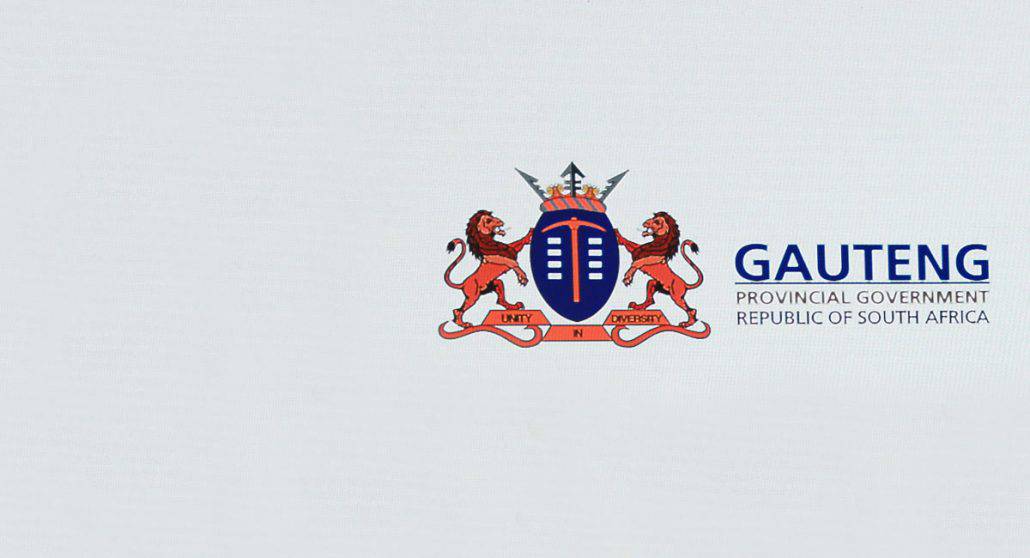More than half of the government departments in Gauteng have no ethics management strategy in place to avoid risks in this area, according to a report by the Public Service Commission (PSC) that was released late in 2017 for the provincial legislature.
The State of the Public Service in the Gauteng Province report “assesses the governance issues in respect of the Gauteng Departments in accordance with the constitutional values and principles as contained in section 195 of the Constitution.”
The PSC adds that the province is well on its way to keeping a clean administration, but several of its key departments have to take matters relating to corruption and ethics more seriously than is the case currently. “Eight out of 14 departments have analysed the ethics and corruption risks to enable departments to strengthen their internal controls and also put mechanisms in place to mitigate the ethics and corruption risks,” reads the report.
It did stipulate, however, that Premier David Makhura’s office is in the process of developing a consolidated ethics risk profile for the province, following a process of finalising risk assessments across the board.
Not enough action against perpetrators
The report further reveals that referrals of allegations of corruption to other law enforcement agencies – particularly in cases of fraud or embezzlement of state funds – were too few, even where the employee had been found guilty. In this instance, the provincial Cogta – which recently saw a change in political leadership – outperformed the other departments as it could account for 100% of all cases it referred with the assistance of the National Anti-Corruption Hotline in the 2016/17 period.
A breakdown by the PSC of the areas of concern in this regard sheds some light: the highest number of cases referred to the NACH by departments involved allegations of bribery, fraud and corruption, in that order.
Of the cases forwarded by departments across the province to the PSC over the past three financial years, most had to do with irregularities in the appointment of officials. The departments of health, infrastructure development, education, roads and transport and treasury all feature in this aspect. Although in several of the cases the findings were such that the allegations had merit, the recommended actions were not followed through – a concern for the commission. “The PSC has … noted with a concern the non-implementation/ lack of feedback relating to the implementation of its recommendations despite follow-ups made.
“This undermines the PSC’s efforts in promoting integrity and ethical conduct in the departments, and the improvement of governance.
“The Premier’s Office is seized with the responsibility of overseeing effective and efficient functioning of the departments and it will therefore take upon itself to ensure that the PSC’s recommendations are implemented by the affected departments.”
Improvement in financial disclosures
With respect to the issue of conflict of interest – particularly relating to officials in senior, decision-making posts doing business with government, the PSC found that there was improvement in the submission of financial disclosure documentation, as required by the Public Service Regulations. All departments of government have to submit such forms by the end of May every financial year.
“Upon receipt, the PSC scrutinises the financial disclosures to identify potential and actual conflict of interests and make recommendations to the EAs.” A total of 197 senior managers were found to have companies that could do business with the state, 14 of which are registered on the central supplier database managed by national treasury. The very objective of having a company on the database is to enable it to bid for government contracts.
Two officials, one in the education department and the other in the premier’s office, were found to have companies that were doing business with the government. “These senior managers have therefore contravened the provisions of Regulation 13 (c) of the PSR, 2016 and the Directive on Conducting Business with an Organ of State and disciplinary steps should be taken in terms of Regulation 9(5) of the PSR, 2016 read with section 16A of the Public Service, Act, 1994.”
Better audit outcomes, but we’re not there yet
The Auditor-General’s (AG) last report on Gauteng pointed to an improvement in audit outcomes over the four years since 2014. “The premier, with the support of the members of the executive council, insisted on a culture of accountability and sound financial management practices and demonstrated timely and effective consequence management where non-performance was identified, as we have seen senior officials found guilty of financial misconduct being dismissed, including accounting officers,” read the AG’s report.
“The political leadership continued to focus on the premier’s vision of a clean administration (termed ‘going green’) by working effectively with the administrative leadership and holding them accountable for the implementation of sound internal controls and financial management practices. Coordinating departments and external oversight structures sustained their oversight responsibilities to further improve governance within the province.”
Audit committees and internal audit units need to improve their oversight to ensure that controls over financial management, compliance with legislation and performance reporting improve and are embedded, the AG added.
The PSC called on the provincial administration to strengthen its resolve for cleaner systems. Irregular appointments, conflict of interest and lack of transparency with respect to making regular performance reports available to the public, were some of the areas that needed vigilant attention.

